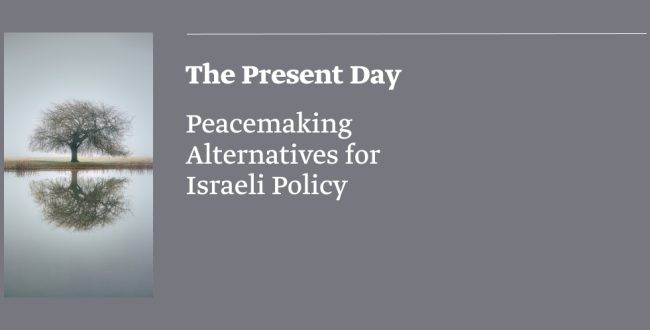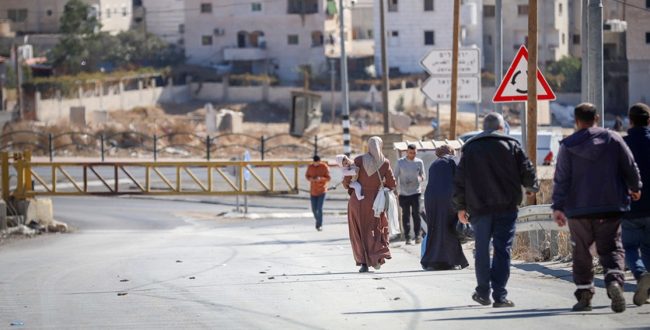Israeli pundit Raviv Drucker recently hailed former IDF chief of staff and current Defense Minister Moshe Ya’alon as “potential for sane leadership on the right”. Two weeks later, after the attorney general closed the investigation against former IDF Chief of Staff Gaby Ashkenazi in the “Harpaz Affair”, Drucker suggested that Ashkenazi lead Israel’s center-left since he offers the only hope for overcoming an incumbent prime minister.
Israeli analysts are just as fond of generals in active duty. For example, IDF Chief Gadi Eizenkot was recently lauded for voicing moderate views on the Israeli-Palestinian conflict, with Yoel Marcus of Ha’aretz claiming that “in these days of terror, stabbings and hopelessness, in these days of spin and fearmongering, there is at least one person we can trust.”
So, who do we have? Ya’alon on the right, Ashkenazi on the left, and Eizenkot in charge of the military (for the time being) – and all should apparently be well with Israel.
Generals appear to wield this mysterious allure throughout the Middle East. Israel’s northern neighbor, Lebanon, has been without a president since May 2014, when General Michel Suleiman (former commander-in-chief of the Lebanese Armed Forces) left office. A leading candidate for the job is General Michel Aoun, who headed the military government in Lebanon from 1988 until he was deposed in a combined Syrian-Lebanese military operation in 1990 and left the country. Interestingly, Aoun, who returned to Lebanon in 2005, after the Syrian army withdrew from the country, has forged a political alliance both with Syria’s ally Hizballah and with his own sworn enemy, Samir Geagea – the former leader of the Lebanese Forces militia, against which Aoun fought fiercely towards the end of the Lebanese civil war.
To the south, Egypt is tightly ruled by Abd al-Fatah a-Sisi. This former general won the 2014 presidential elections by a landslide, a year after his successful coup against Muhammad Mursi of the Muslim Brotherhood. Mursi had won the first free elections held since Egypt’s independence.
To the east, while Jordan is ruled by a king rather than a general, Abdullah the Second boasts a military career, albeit a rather symbolic one. The same goes for Assad Jr. in Syria, who underwent speedy military training before taking office as president in 2000.
“General Suleiman” (Zeid and the Wings)
It appears, therefore, that Israel does not stand out among its neighbors. But what is at the root of this public fascination with uniformed leaders? Clearly it is not their political expertise, which does not outshine that of their civilian counterparts. Perhaps it is the public perception of military men as more honest, upright, and moderate in their views than politicians. This image is not always justified, as Israeli Defense Minister Ya’alon’s recent statements on Israel-US relations exemplify.
Indeed, the three Israeli army chiefs mentioned above are seen as more moderate than Prime Minister Netanyahu; Lebanese general Aoun is viewed as more dovish than either Hizballah or former militia leader Geagea; and Egyptians prefer a-Sisi, a former general, over the Muslim Brotherhood. The situation in Jordan and Syria is similar – with President Assad, especially, going to great lengths to present himself as the number one fighter against “terrorism”. In other words, generals – whether boasting illustrious careers or merely a short training stint – are seen as the lesser of various evils in the Middle East.
In addition to their image as moderates, generals represent certain values that many in the region hold important. One of these is a tendency towards achieving consensus – a rare quality in these parts. General Fouad Chehab captured this idea when he stated, after being elected president of Lebanon in 1958, following the country’s first civil war, that the citizens had not voted for him: They had simply been unable to vote for other candidates.
Yet appointing generals to run a country, whether because they are seen as better than others, as a lesser evil, or as capable of achieving a much-needed consensus, is problematic.
First, commanders turned politicians are usually called upon to deal with issues that do not necessarily relate to military or security concerns. There is no reason to believe that they have any advantage in this respect over civilian professionals. As the 2000 Camp David Summit and Israel’s 1982 and 2006 wars in Lebanon proved, not every political problem can be solved by waving a pen or a sword around.
Second, ex-generals tend to see the public’s vote of confidence in them as a carte-blanche, instead of acknowledging the fundamental differences between military and political work. The consequences are all too familiar: Ex-military Israeli prime ministers Yitzhak Rabin and Ehud Barak understood the core of the conflict with Palestinians too late; Fouad Chehab, although modest about his victory, tried to fix the maladies of Lebanese politics and ended up making enemies of traditional leaders. In Egypt, a-Sisi quickly fell in with the pattern of leader worship set by Nasser, Sadat and Mubarak – all former officers, too.
Another problem is that voting in generals imbues military and related institutions with even more power, leading to an increasingly militaristic society. As it is, many political, social and economic problems in Arab countries and in Israel are delegated to the army (for example, the low employment rate of the ultra-Orthodox in Israel), even though it is not at all clear whether the army can resolve the problem.
Certainly, generals can become good political leaders. Dwight Eisenhower and Charles de Gaulle played important, even crucial, roles in the history of their countries. But they did so precisely because they realized the fundamental difference between politics and defense, and managed to shed their uniforms.
In any case, what worked for strong, stable countries like the US or France may not necessarily be right for the volatile Middle East, in which many states are still under construction. Here, launching military chiefs directly into leadership roles could have an adverse effect, by strengthening problematic ties between society, military and state.
Translator: Michelle Bubis

















